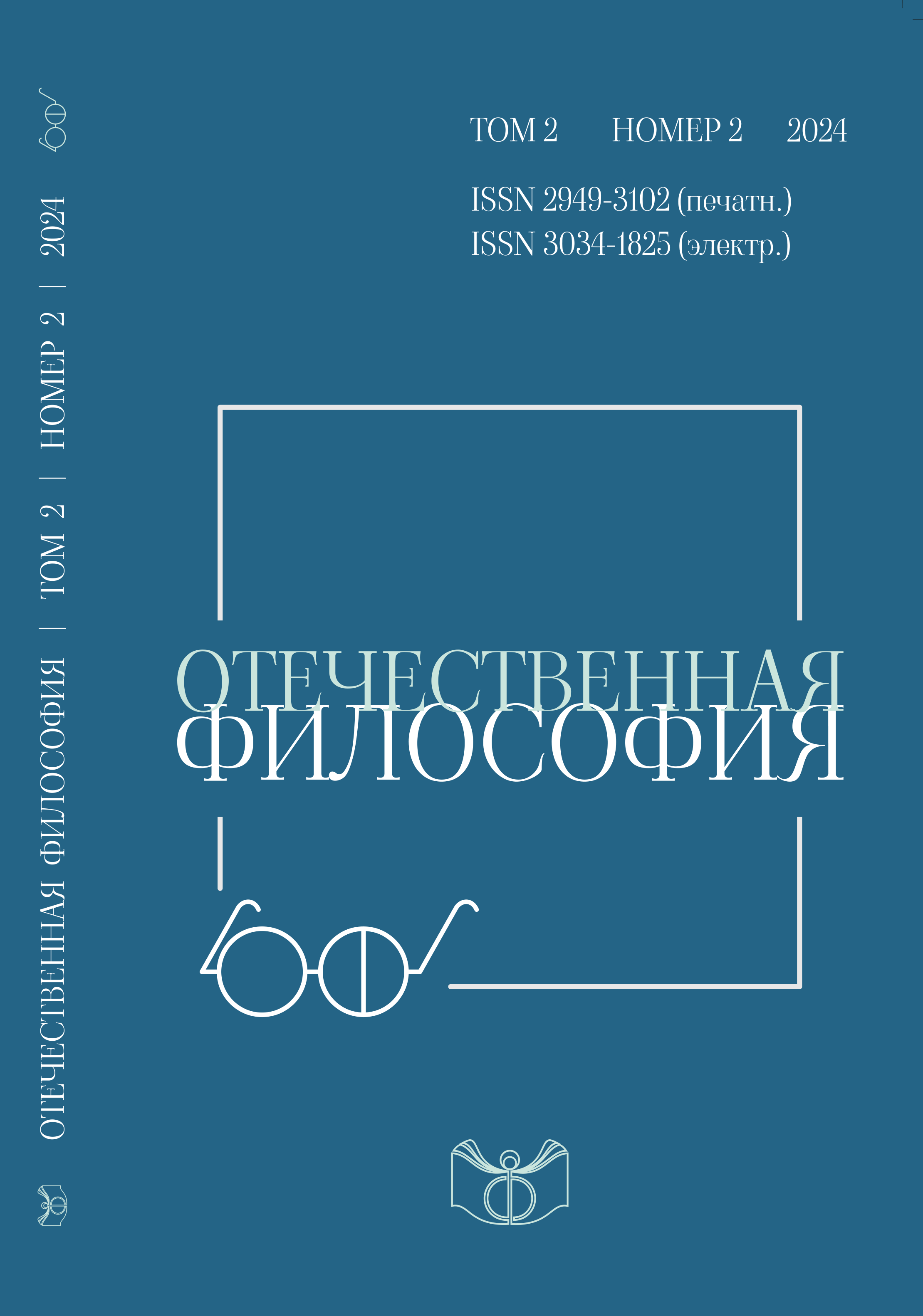V.A. Bazarov: From Technological Empiricism to Bergsonism
Keywords:
Bazarov, empiriocriticism, Machism, Marxism, Bergson, pragmatism, technological empiricism, philosophy of science, history of philosophy of scienceAbstract
The article presents an analysis of epistemology and philosophy of science of the Russian marxist philosopher V.A. Bazarov. In the first part of the work, two stages of the philosopher’s evolution are distinguished and analyzed: empiriocritical and voluntarist. First stage of Bazarov’s thought is characterized by anti-metaphysical and empiricist attitudes. What separates him from other representatives of empiriocriticism is his emphasis on the activeness of the cognizing instance. It is shown that around 1910 Bazarov’s views underwent a final shift towards voluntarism, considered as the second stage of his philosophical evolution. It is demonstrated that although Bazarov’s thought developed in this direction independently, the reception of H. Bergson’s philosophy played an important role in the transition between the two stages. Ultimately, the evolution of Bazarov’s views leads him to abandonment of the key commitements of positivism and to adoption of the Bergsonian “philosophy of action”. The second part of the work is devoted to an attempt to actualize Bazarov’s views in their development through their consideration in the context of “technological empiricism”, i.e. a position in the philosophy of science reconstructed by modern scholars that unites such thinkers as A.A. Bogdanov, O. Neurath and N. Cartwright. All of them stress technical, social and physical side of scientific experience, emphasizing the richness of reality under study and ways of its representation, as well as opposing fundamentalism about high-level theoretical constructions in science. The validity of Bazarov’s characterization at the first stage of his evolution as a representative of this position is substantiated. Then, Bazarov’s philosophical evolution is considered once again, but now through the optics of technological empiricism, which allows to draw conclusions about the internal tendency of this theoretical position towards voluntarism and relativism.


